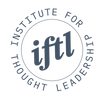
Good writing is about what’s in your story. But it’s also very much about what’s NOT in your article.
Generative Al tools now make it super easy to top up your research and bring in extra ideas to your writing.
But don’t let research done with ChatGPT get you off track.
Too much information packed into an article is already a problem for many experts. ChatGPT will only make it faster and easier to add even more ideas and material.
That can take articles from unwieldy to super unwieldy, which is not an improvement.
The goal should be thought-leadership writing that externalizes your expertise, experiences and opinions, is framed in a journalistic way and serves your audience, which you known intimately.
The goal should NOT be to create articles that are comprehensive. If you do that, you’ll end up with a library of articles that have a list character. That will be a collection of articles that people can easily forget.
A child in a candy store
The temptation with ChatGPT will be to go wide to see what the machine might find out that you overlooked in your article.
As an ideas person, you may then want to grab onto many or all of those ideas and make sure they get their hearing. You may end up behaving like a child in a candy store who wants to touch and taste everything.
Slower writing with ChatGPT?
I can also see how research with ChatGPT can slow down the development of a good article. That’s because the research it can do may mean there’s a whole lot more to consider for your piece. You might find yourself chasing ideas down rabbit holes and coming away from the whole exercise overwhelmed and with less clarity.
Writing is typically an exercise in achieving clarity – which is one reason writing programs are so important in knowledge-based companies. Be careful to keep it that way.
Narrow down with ChatGPT
ChatGPT is also used to drill down. If you write your prompts in ways that lead you deeper rather than wider, research via ChatGPT can be a valuable addition to an article written in the thought-leadership style.
My suggest is this: Let your knowledge be enough – trust that you have the experience and expertise to provide guidance to your audience.
Don’t be tempted to research with ChatGPT and then parade knowledge that’s not actually yours. Readers will see through it. No one wants to read a series of facts strung together.
